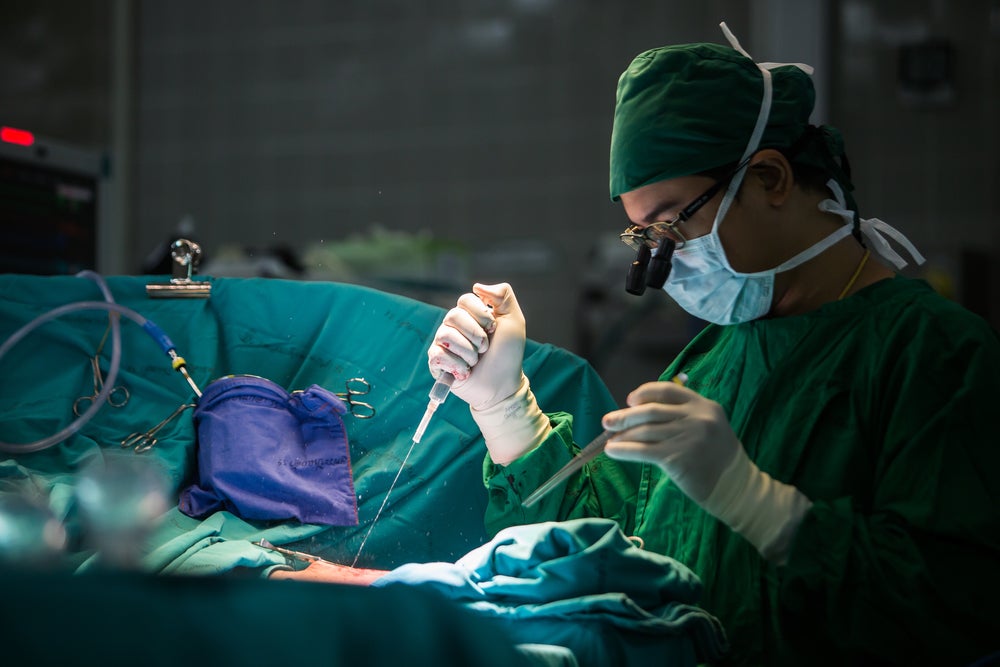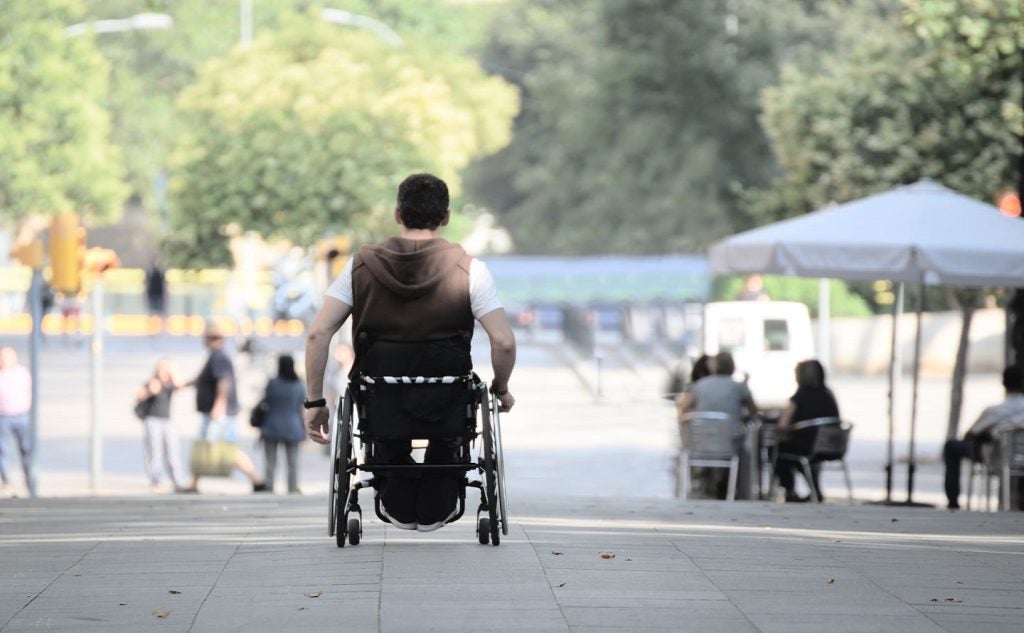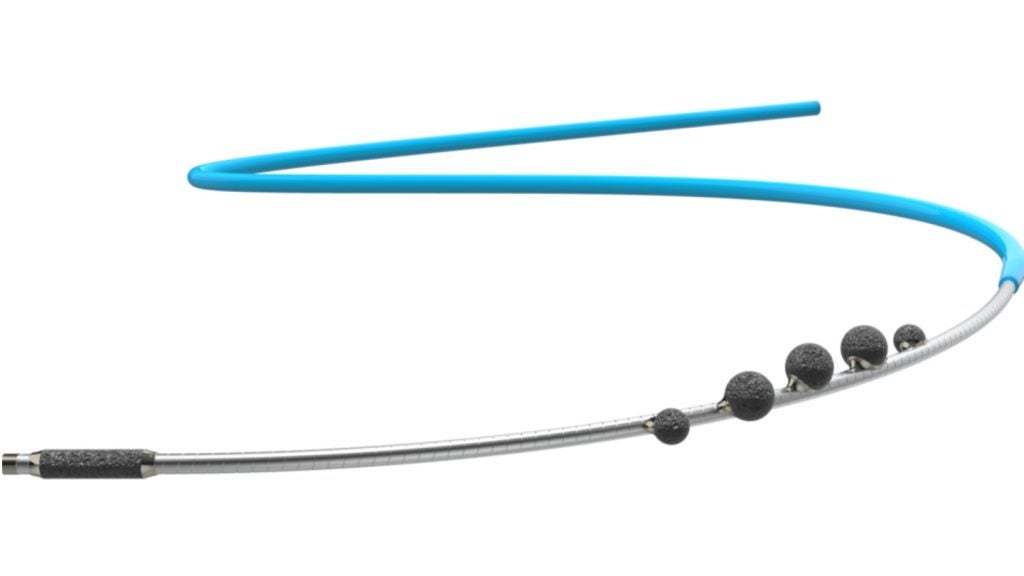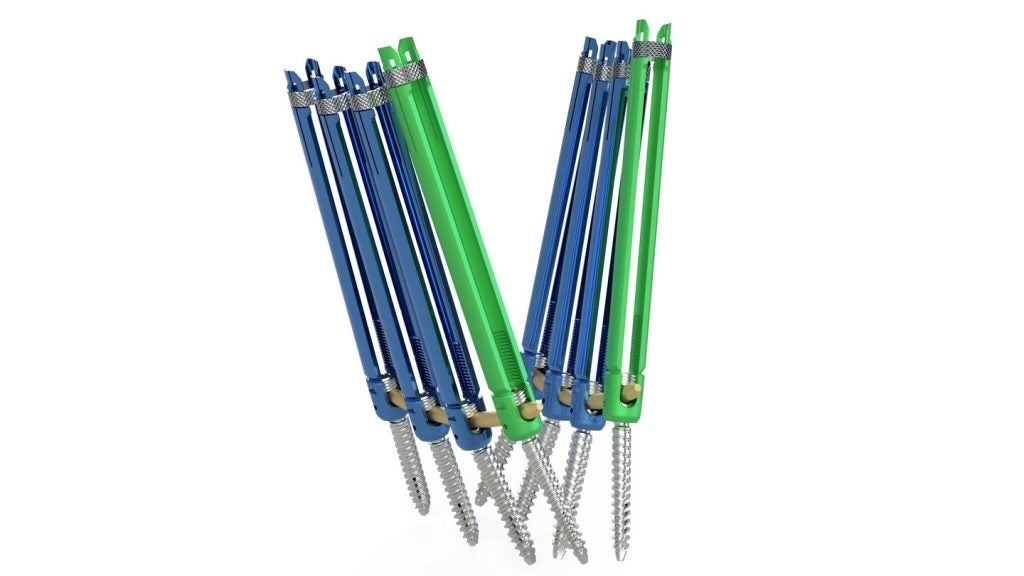French robotics firm Robocath has released new results from a trial using its R-One robot for carotid stenting.
Robocath said that the 2021 trial saw the company’s R-One system perform all seven carotid stenting procedures without any medical complications.
The single-arm, non-randomized clinical trial launched in November of 2021 at Rennes University Hospital in a bid to expand treatment options for neurovascular diseases such as strokes.
The trial, dubbed the CARE trial, involved Dr. François Eugène and Dr. Quentin Alias performing procedures using the company’s R-one system which Robocath has said enhances physicians’ hand gestures through increased precision whilst drastically reducing medical staff’s exposure to X-rays.
François Eugène, neurointerventionalist at Rennes University Hospital said: “The success of these procedures is down to two key factors: accuracy and speed of patient care.
“Just like human hands, Robocath’s robot can move with millimetre precision and ensure the instruments remain in a fixed position for the entire duration of the procedure.
“Moreover, the technology opens up the possibility of long-distance treatment for stroke patients. Given these advantages, I believe that, in the years to come, robotic technology will be a driver of change in our patient care.”
It comes after Robocath announced the launch of its R-One+ system, intended for use in coronary angioplasties, at the EuroPCR 2023 conference in Paris. Presently the robotics industry is seeing a compound annual growth rate of 29% and will be worth $568bn by 2030, according to GlobalData.
Lucien Goffart, CEO of Robocath, said: “Conducting this first study in interventional neuroradiology was an essential step in the development of our robotic platform. Since then, we have worked hard to integrate the expectations of users in order, ultimately, to offer them an intelligent robotic solution they can use in their daily practice to the patient's benefit.”















